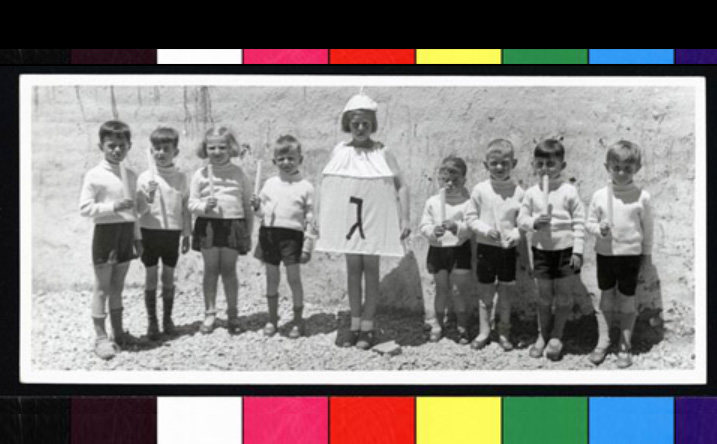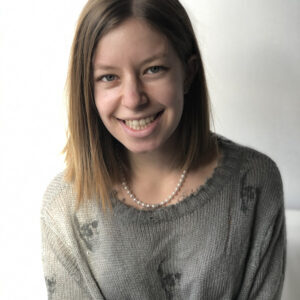After experiencing the atrocities of the Holocaust, it is hard to believe that anyone would have the capability to live their life “normally” afterwards. Is there a constant search for family who may have endured? What about the yearning for the knowledge of those who perished? For the Jews who survived, many decided right away that it was their duty to continue their family’s legacy. While these legacies continued the stories of survivors during the war, the children of these survivors continue to be impacted by their parents’ experiences to this day.
The children of the Holocaust survivors, also known as “second generation survivors,” have been found to be heavily influenced by their parents’ experiences of the Shoah. Straight out of war, survivors often became traumatized parents. According to Dr. Hannah Starman, when reuniting with the family was proven impossible for most post-war, the next greatest reason to survive was the creation of a new family, a “concrete act to compensate for losses.”
Despite this extremely significant desire to have children, many survivors feared that, after living through the Holocaust, they would no longer be able to become parents. A number of women questioned if they could become pregnant after such horrific physical conditions. Many lost their ability to menstruate during the war because of hunger and disease, therefore concluding that perhaps they wouldn’t be able to reproduce even if they survived.
Nevertheless, within post-war displaced persons’ camps, remaining Jews experienced the highest birth rate of any Jewish community in the world. Still, there was great emotional pain for these new mothers. During the war, Nazi hatred created the idea that Jews were “abnormal” and therefore when many women post-war became pregnant, they saw themselves as different and unwanted, says author Sharon Cohen, a scholar who focuses in her literature on how survivors understand their own parenting. The women worried that their children would be “abnormal” as well, fearing they would struggle raising them and providing a safe and stable environment.
Survivors wondered what would be safest for their children after living through the Holocaust. Was it best for them to live in a Jewish or gentile neighborhood? To become well known in society or hide and never be seen? To have children to replace all those lost, or to never have any children again to avoid further killings? All of these questions emerged from a common fear that the next generation might face the horrors of genocide just as their parents did.
Understandably, however, there was a great desire among survivors to choose life within the Jewish community after so much death. Numbers and numbers of survivors entered into what scholars Dan Bar-On & Julia Chaitin saw as “loveless marriages of despair.” According to research, 80% of survivors of the Holocaust chose fellow survivors as their marital partners after the war. Yet countless survivors, without the time to properly comprehend such horrific experiences, felt they did not have the full capacity to love their partner. Many of those who became parents struggled with their own inability to mourn the loss of the dead in their lives and often felt preoccupied with feelings of self-worthlessness and self-hatred. Negative emotions often led to a common lack of development of positive self-image in their children.
Regardless of the struggles survivors faced post-war, many truly believed it was their duty to rebuild their family that was lost in the atrocity. “Seventy members of my family perished in the Holocaust and when we were seventy again including my children and grandchildren I said to my children: I have done what I have needed to do,” said one survivor, according to Cohen. Although morally fulfilling for those who lived on, these post-war children faced large expectations and vast hardships for years to come.
Due to the fact that a majority of those who survived the Holocaust were children themselves during the war, many survivors became foster children afterwards, having lost their own parents within the camps and ghettos. Because most survivors only had so much time with their parents as children, they faced feelings of absence and did not remember their parents’ parenting. Survivors also often lacked role models once they had their own children. A number of survivors recall their parents using a “fight or flight” method of problem solving during the war, leading survivors themselves to commonly have such a reaction with their own troubles and children.
Second generation survivors today commonly address the feeling of overprotectiveness from their parents. Some say their parents took immense precautions in letting them live their own lives in response to the lack of protection the Jews possessed during the war. One survivor interviewed by Cohen described that she often felt powerless as a parent and frequently had nightmares that she was unable to protect her children from the Nazis. As scholars Robert Krell, Peter Suedfeld & Erin Soriano pointed out, many children had difficulty leaving home, taking on the feelings of their parents.
On the other hand, some survivors did the opposite and allowed their children immense freedom; letting them go on trips and venturing around the world in response to their own lack of exploration in childhood. Some children exposed themselves to real danger in outdoor adventures across the country, some took risks creatively through art and writing, and others stepped into the world of politics after their own parents were denied any say in law of the past. These children felt compelled to prove their strength in different ways than their parents once had to.
Many survivors acquainted their children with stories of their past, not always realizing the effects this would have on their child’s development. Known today as “transmission of trauma”, this phenomenon is a highly studied portion of the aftermath of the Holocaust. Transmission of trauma may begin the moment a child was born; many survivors saw such a child as the replacement of their own past family, hoping the child would fill large gaps in their parents’ lives. Many children were expected to “undo” what happened to their parents in the Holocaust as well as satisfy their parents’ yearning for lost siblings, parents, and extended family. Many second generation survivors felt the need to protect their parents from even greater emotional distress than they have already experienced in the past.
According to Starman, a model that describes what is commonly experienced among survivors and their children is called the “inverted parenting model,” when “parents are unable to adapt to meet the child’s needs, and where the child needs to adapt in order to gain attention, acceptance, and approval.” This model plainly shows how many survivors faced so much trauma during the war that the unresolved aftermath projected into their daily lives, leaving their children to often feel the need to change themselves in order to be who their parents’ wanted them to be. Given experiences of torture, death, and constant unbelievable brutalities during the Holocaust, it is not hard to understand that living as a family of first and second generation survivors may require greater work at times, as the model might suggest. Yet, in a recent study done on survivors in Israel by scholars Ayala Fridman, Marian J. Bakermans-Kranenburg, Abraham Sagi-Schwartz & Marinus H. Van IJzendoorn, it was found that female second generation survivors of adult age had similar emotional stability when compared to womenof similar ages who were not children of Holocaust survivors.
One example of “transmission of trauma” is the story of Esther Perel, a child of two survivors who were not always conscious of how their young daughter was impacted by hearing about the Holocaust. Perel explains that her parents did not believe that being “protective” meant hiding her from what they experienced. If she questioned what the numbers on her parents’ arms were, Perel says they told her outright, “Auschwitz.” When she wondered why she lacked grandparents, they simply stated, in Yiddish, “They were gassed and murdered.”
Perel called her parents the survivors who “came back to life,” living their post-war life with zest. This provided Perel with childhood understandings that many non-survivors may never have. Among other second generation survivors in Antwerp, Belgium at such a time, Perel felt that “all of this to us seemed completely normal.”
Though some survivors like the Perels openly spoke to their children about their experiences, many parents avoided speaking about their past altogether. Some felt unable to share feelings with their children. Often when parents would stay silent about their past, their children felt troubled. “These types of communication often scared the children, leading them to engage in frightening fantasies, or to develop other disturbed psychological states” points out Bar-On and Chaitin. Although a number of parents would not directly tell their stories to their children, some would have friends, other Holocaust survivors, over to their house for dinner or tea, leaving the children able to hear about experiences through a third party.
Many parents gave conflicting messages to their children in terms of how they should live their lives; for example, many made clear that it is important to remember the past, yet the survivors themselves did not share their own past with their children. These situations of conflict among parents and children can be identified as a cultural generational gap, Cohen explains. First and second generation survivors of the Holocaust were raised with differing methods of relating to life and experience. On one hand, first generation survivors were typically brought up with a solid picture of what is right and wrong in their mind, according to their parents, period. On the other hand, however, second generation survivors have been brought up with a larger gray area when it comes to decision-making; while their parents still taught them rights and wrongs, there was more room for searching within when it comes to making decisions.
These differing moral beliefs created contrasting ways of communicating how these two generations felt about the effects the Holocaust on their family. Today, however, many survivors who remain feel more comfortable speaking about their Holocaust experiences with their grandchildren, or “third generation survivors.” Older survivors may feel as if if they do not tell their stories now, then they will never be heard.
While the first generation survivors truly lived through horrors that one can never (and hopefully will never again) relive, their children faced a different emotional aftermath. Although some survivors did not reveal what they lived through until their children were much older, the majority of second-generation survivors faced unspoken struggles because of their parents’ experiences: overprotectiveness from their parents, a need to look after their parents, and commonly a notion that as children, they had to fill a void of the family their parents lost in the war.
It’s still uncertain how second generation survivors will impact the third generation and the future beyond. Regardless of what one’s ancestors lived through, whether the Holocaust or other Jewish traumas, such moments make us aware that family is a precious part of Jewish life. By learning about the Holocaust, specifically how relationships were affected among survivors and their children, our eyes are opened to the idea that by teaching one another about our pasts, we not only can form stronger bonds among our family members but also, find ways of healing collectively as a Jewish people. By sticking together as a people through this process of healing, we are also able to search through and delve deeper into understanding ourselves, and decide how we as individuals desire to grow to become the Jews of the future. As Hillel the famous Jewish Elder once stated, “If I am not for myself, who will be for me?” With this, as we learned from the first generation survivors, it is crucial that no matter what Jews must go through, we go through it together.

